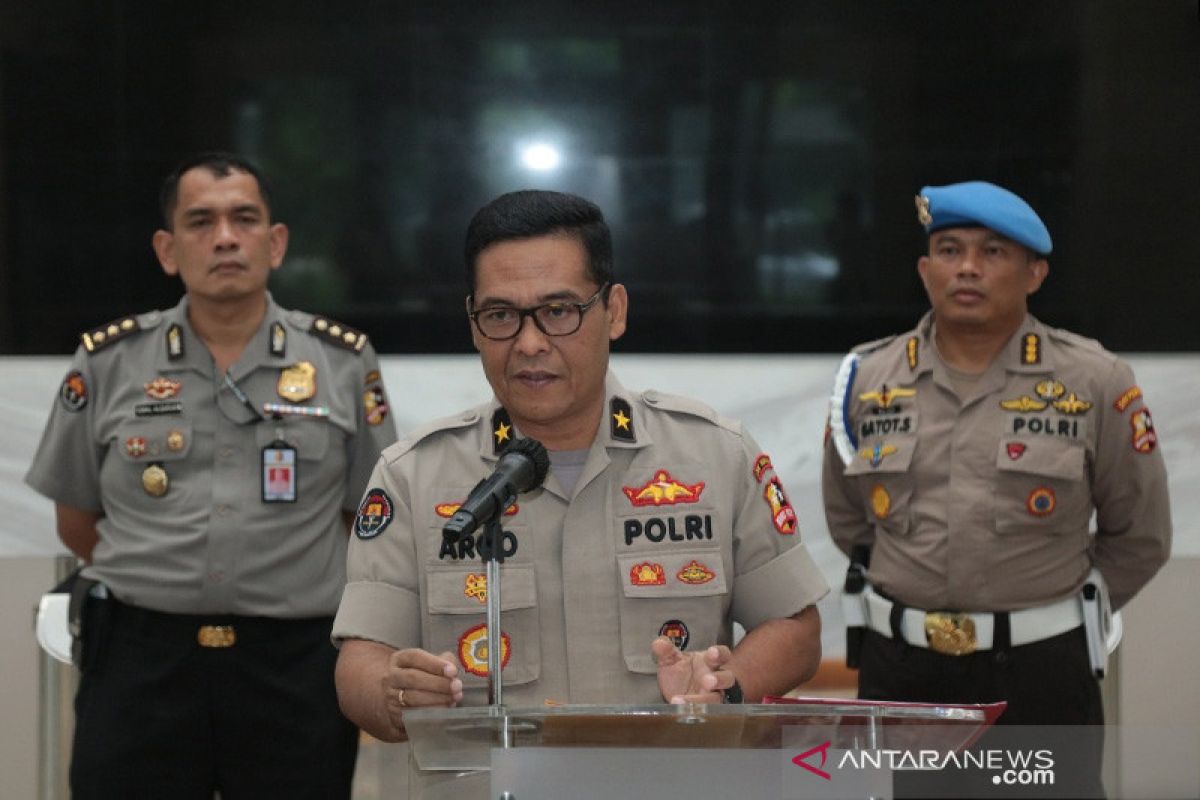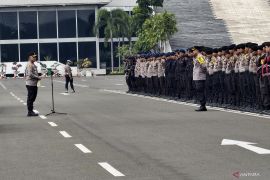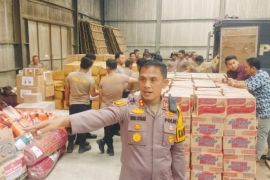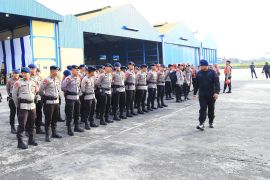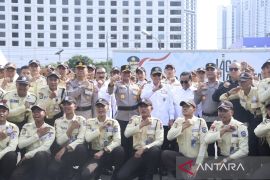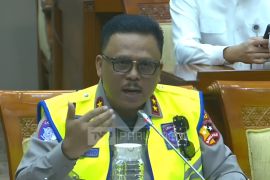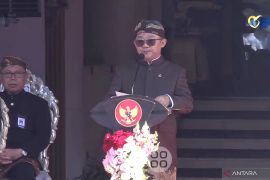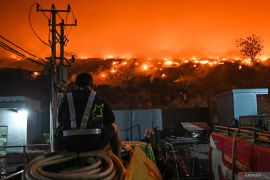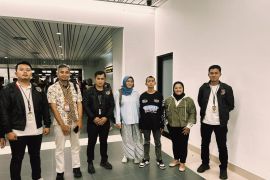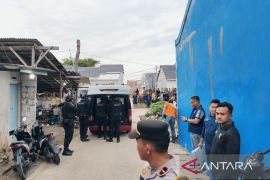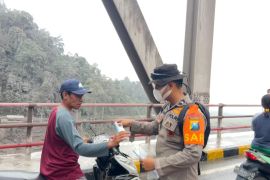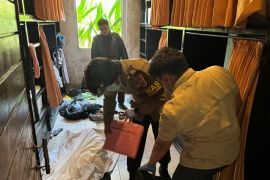If you are a carrier of the disease to your hometowns, and your relatives die of the virus, then this is what we do not want to take placeJakarta (ANTARA) - National Police Chief General Idham Azis has officially banned all police officers and civil servants within police institutions across Indonesia from returning to their hometowns for the Idul Fitri "mudik" season this year.
"Mudik" refers to the annual exodus of citizens to their hometowns to celebrate Idul Fitri with their extended families and colleagues.
This prohibition is also applicable to police officers and civil servants' nuclear families in an endeavor to halt the spread of the novel coronavirus pandemic, National Police spokesman Brig. Gen. Raden Prabowo Argo Yuwono stated here Friday.
General Azis' decision was stipulated in telegram number ST/1083/IV/KEP./2020, dated April 3, 2020, that encompasses the four key points, including prohibition on undertaking a trip and/or returning to hometowns during the Idul Fitri "mudik" season.
Yuwono stated that police officers and civil servants were also instructed to assist those in dire need in their neighborhood areas. They are also required to maintain recommended physical distancing measures and to practice a healthy lifestyle.
In connection with the "mudik" issue, Indonesia's government has decided to not ban "mudik" though strongly requested citizens, especially Jakarta's residents, to not return to their hometowns during the Idul Fitri "mudik" season this year owing to the COVID-19 pandemic.
Coordinating Maritime Affairs and Investment Minister Luhut Binsar Panjaitan notified journalists of the government's decision during a videoconference after participating in a virtual meeting, chaired by President Joko Widodo, in Jakarta on Thursday.
Panjaitan remarked that the government's official stance on mudik did not pertain to banning it. In its place, the government, along with community figures, appealed to the people at large to not return to their hometowns for ensuring safety of all.
The minister highlighted the government's keenness to build common awareness among members of the public of the importance of not returning to their hometowns this year, as they could be likely carriers of the coronavirus disease.
"If you are a carrier of the disease to your hometowns, and your relatives die of the virus, then this is what we do not want to take place," Panjaitan, concurrently the acting transportation minister, stated.
The government is striving to ensure that those using means of public transportation should adhere to the healthcare protocols on COVID-19 preventive measures, including that on the implementation of recommended physical distancing, he expounded.
People keen on returning to their hometowns during the Idul Fitri "mudik" season this year must be quarantined for 14 days and must undergo health examination in their hometowns.
To this end, the central and regional governments are coordinating to ensure that the returnees are quarantined and medically examined as part of the collective endeavors to stop the increase of contagion areas, he stated.
This year, the Idul Fitri holidays will fall on May 24-25. The Muslim festivity marks the end of the holy month of Ramadhan, when Muslims around the world go on a fast.
For millions of Indonesian Muslims, including those living in Jakarta and its outskirts, returning to their hometowns in the islands of Java and Sumatra during the "mudik" (exodus) period has become an annual tradition.
The new coronavirus disease that firstly struck the Chinese city of Wuhan at the end of 2019 has infected more than one million people globally, according to CNN quoting the data released by Johns Hopkins University on April 2, 2020.
This COVID-19 pandemic has also spread to various parts of Indonesia. As of April 2, there were 1,790 confirmed cases, while the death toll was recorded at 170, and 112 patients were discharged from hospitals.
Related news: Jakarta records nearly one thousand confirmed COVID-19 cases
Related news: Indonesia builds hospitals, quarantine centers in handling COVID-19
EDITED BY INE
Translator: Anita PD, Rahmad Nasution
Editor: Fardah Assegaf
Copyright © ANTARA 2020
